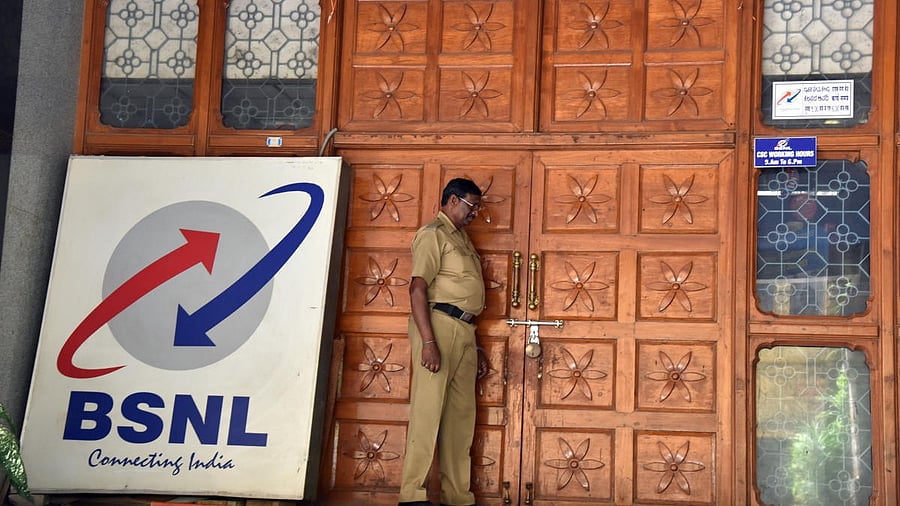
New Delhi: Slamming the BSNL management for failing to boost revenue generation, the employees union has urged the telecom operator to reconsider and withdraw its decision to implement a second Voluntary Retirement Scheme (VRS).
“BSNL's financial problems are not due to its employee strength but rather the management's inability to significantly increase revenue generation. We strongly urge the management to withdraw its decision to implement a second VRS,” said P Abhimanyu, general secretary of BSNLEU (The BSNL Employees' Union) in a letter to the company management.
The union’s criticism follows reports that BSNL's board of directors plans to cut the workforce by 35 percent through another round of VRS initiative.
BSNL employs 29,750 executives and 26,435 non-executives as of March 2024. In the first VRS, implemented in 2020 by the company, around 80,000 employees opted for retirement.
The government estimates, BSNL spends 38 percent of its revenue on employee salaries while private operators like Jio and Airtel salary expenditures are in single digits.
“There is no justification for implementing another VRS in BSNL. The main recognised trade union strongly opposes this decision and demands its withdrawal,” the union stated. The Mahanagar Telephone Nigam Limited (MTNL) case, where multiple VRS schemes failed to improve financial performance, led the company towards closure, the Union said.
“When private operators like Reliance Jio, Airtel and Vodafone Idea have the freedom to procure their 4G and 5G equipment from reputed international vendors like Nokia, Ericsson and Samsung, why should BSNL alone be restricted to procure its mobile equipment from Indian vendors? This is nothing but denial of level playing field to BSNL,” reads the letter.
The Union also alleged that the delays in deploying BSNL’s 4G equipment by TCS have led to revenue losses and customer dissatisfaction. Though in several locations 4G installations have completed, customers are still facing issues with poor-quality voice and data services, the union noted.
Despite receiving revival packages in 2019, 2022, and 2023, BSNL has struggled to enhance its revenue. Unlike Jio and Airtel, which have completed pan-India 5G rollouts, BSNL relies on outdated 2G and 3G services.
